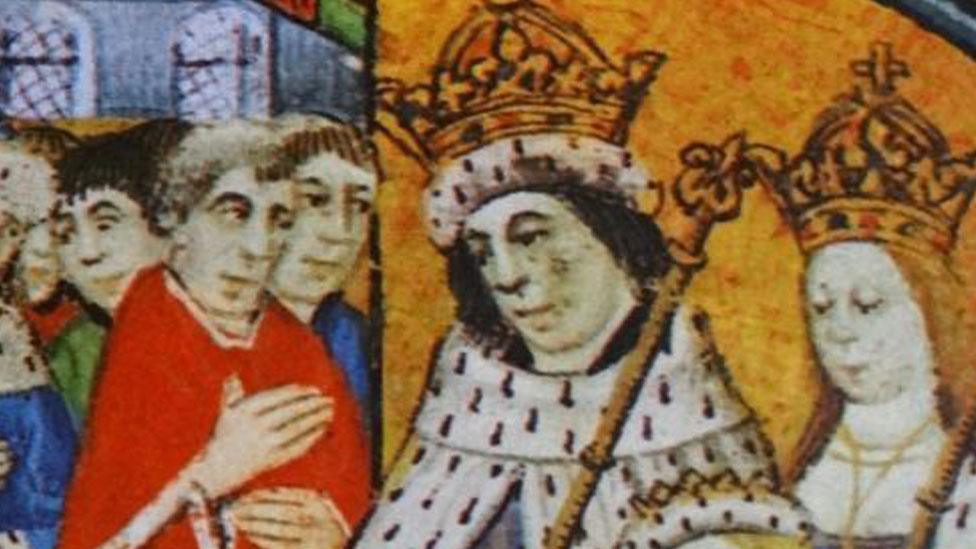Student finds six Roman pots during community dig
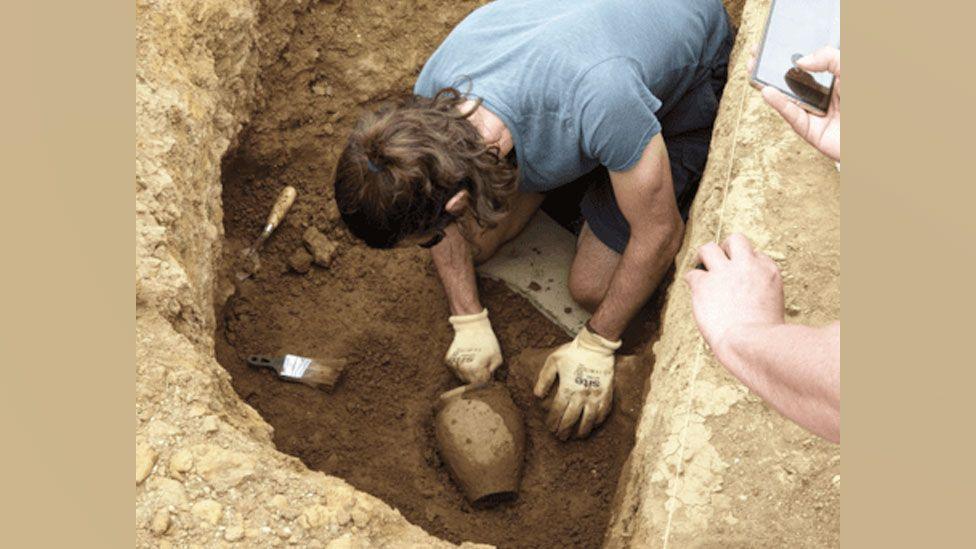
Prof Sarah Scott said it was fantastic that students and volunteers were given the opportunity to "work together at this nationally significant site"
- Published
A student has found six complete Roman pots during a community dig.
They were discovered at Chester House Estate, near Irchester, Northamptonshire, one of Britain's best-preserved Roman small towns.
Davidson Copeland, a third year archaeology student at the University of Leicester, was taking part in his first excavation when he unearthed the pots last June.
Archaeologist Sarah Scott said: "It was an incredible experience for our student Davidson and we are very proud of his efforts."
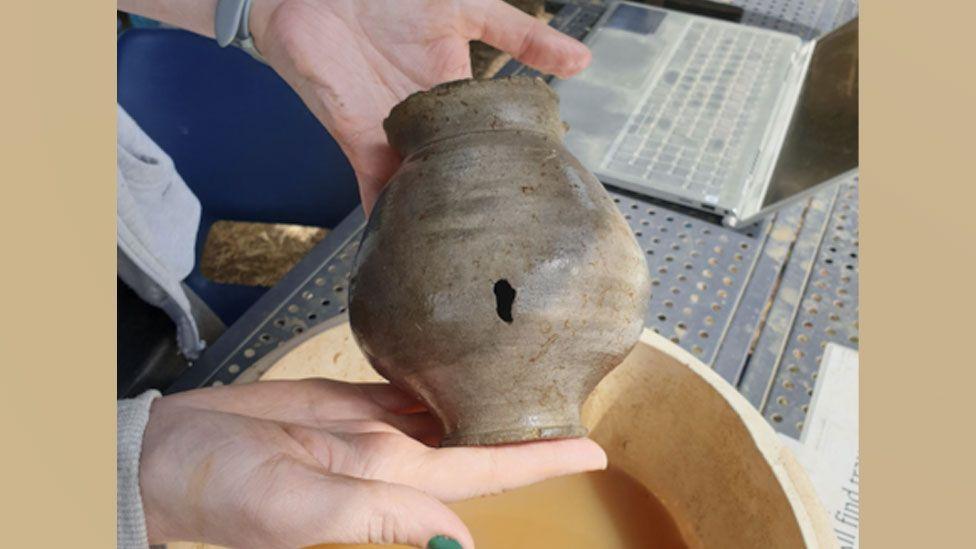
Some of the pots had holes in them, which experts believe means they were used as money boxes or for religious offerings
Prof Scott, who is a professor of archaeology at the University of Leicester, said: "Uncovering the pots was a painstaking process.
"The successful excavation was the result of exceptional teamwork and expert guidance."
Archaeological ceramic specialist Dr Adam Sutton, from Aurelius Archaeology, analysed the collection and identified them as beakers, a small flagon, two jars and a 2nd Century AD samian ware bowl.
The bowl was was stamped with a mark which revealed its maker was called Dexter, who was working in central France at the time.
Samian ware is the name given to the red-gloss Roman pottery which was mass-produced from the 1st Century BC to the 3rd Century AD.
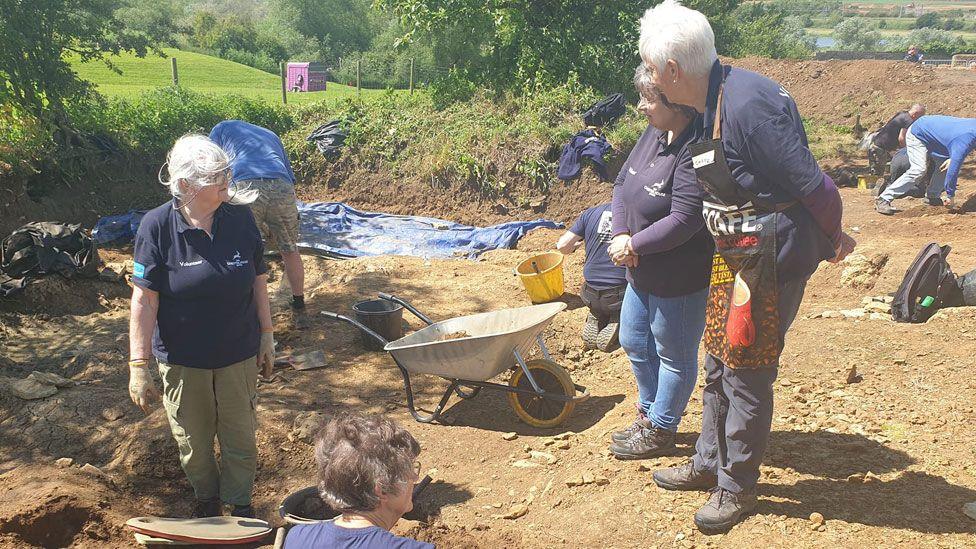
The excavations are part of a long-term collaboration between the university and Chester House Estate and includes volunteers as well as students
The pots were found at the bottom of a deep pit in Irchester's suburbs, suggesting they had been carefully placed there.
Some of them had holes which suggested they might have had a practical use such as money boxes or as a religious offering.
"This fascinating discovery has generated huge interest and excitement amongst team members and visitors alike," said Prof Scott.
The excavation was part of a long-term collaboration between the university and North Northamptonshire Council, which owns Chester House Estate.
Volunteers work alongside archaeology students.
This year's excavation has begun and will run until 12 July.
The pots will be available for viewing at the estate's Roman Festival on Saturday and Sunday, external.
Follow Northamptonshire news on Facebook, external, Instagram, external and X, external. Got a story? Email eastofenglandnews@bbc.co.uk, external or WhatsApp us on 0800 169 1830
Related topics
- Published12 May 2024
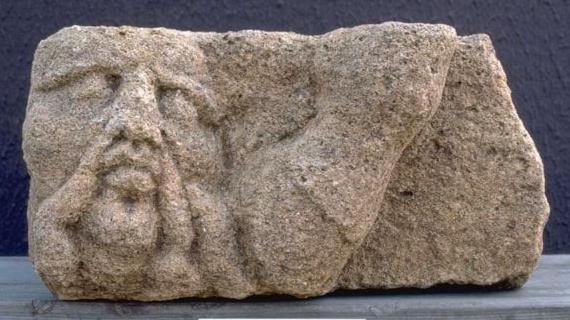
- Published27 December 2023
